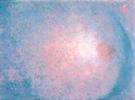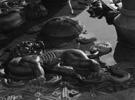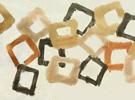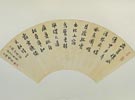When and where were you born?
I was born in October 1956, in a small town called Mi’le, in the south of Yunnan Province. The town was barely 1km2. It was surrounded by mountains; rivers flowed like silver snakes from all directions, winding around the mound on which the town was located, like dragons playing with golden balls . In the spring, everything came to life; in the winter, the mountains were covered with snow and smoke floated out from kitchen chimneys; in the summer, the willows swayed and whispered with the breeze; in the autumn, wild geese spread their wings over the golden earth.
Describe the area where you lived.
I lived in the hilly area to the south of the town (we lived in a two-story wood and earth house inherited from my ancestors. It had approximately 120m2 of floor space.) We had a sweeping view: from the balcony we could overlook the Xunxi River to the south, the mountains on both sides, and the endless paddy fields. In autumn, we could even smell the faint scent of rice from the fields. On one corner of our house the local radio station had installed a loud speaker and every day at dawn it barked songs and instructions from the Central Party from its gapping mouth. When I could no longer stand the noise, I would shoot pebbles at it with a slingshot… All of it slowly disappeared 30 years ago. Now there are artificial lakes there; the flowers, grass, rivers, and fields are gone forever.
On the mountains surrounding the town, there lived 11 ethnic minority groups, each with different customs and language. The population ratio of Han Chinese and minority groups was 1:1. The ethnic people were smart, diligent and good at singing and dancing. It was here that the world famous “A Xi Moon Dance” originated.
Describe the town, its architecture, its surroundings, its atmosphere.
Everything about my mountain village home had a major impact on the earlier stages of my artistic development, but I must say that the architecture in Mi’le, from past to present, is the most featureless and unromantic architecture I have ever seen in my life. It is even a compliment to call it “architecture.” In the past, there were simple traditional houses, but it is hard to call the houses you see there today “houses.” The ethnic peoples who had been defeated by the Han and had fled to the mountains a thousand years ago were expert house builders, but their intelligence and expertise were limited to mountain areas, and that is why the houses in the city are far uglier than those in the hills. Mi’le was a small town without any historic or cultural relics, museums or galleries. It did have a library though, which housed only one book on traditional Chinese painting.
Tell me about your family.
My parents had many children. After having me, they gave me two younger brothers and two younger sisters. My first brother died of starvation a few days after he was born. I too came close to death a couple of times, but I survived by the skin of my teeth. However, the resurrections came at a price. I learned how to light a fire and cook at the age of six; by the time I was seven, I was cooking with my second youngest brother on my back; by the age of ten, I passed on my younger sister to my younger brother before I started making dinner. I was just like a little donkey—the older I got, the heavier the burden.
Father, who had had a hard life, passed away the same year I graduated from junior high, leaving behind my mother who earned seven Yuan a month; my 70-year-old grandmother, who had bound feet; my nine-year-old brother; and two sisters ages six and two. It is common practice in China for the eldest son to act as the head of the household. I was exactly 16 when he passed away. As a result, my father’s responsibilities were passed on to the eldest son—me. Now the little donkey shouldered an even heavier burden, and set off down the road of life on his 16th birthday.
What did your father do for a living?
My father was one of few people of his generation who had received a senior high school education and could be regarded as being educated. Unfortunately, he was in the first batch of intellectuals to receive political reeducation from the CCP and in 1960, he was dispatched from the post office in Luliang County, Yunnan, to a faraway forest region. To be reeducated through logging was bad enough, but to make matters worse, his back was broken by a falling tree. He was carried home one night on a makeshift stretcher made of wooden sticks. The family did not know what to do. We wept and sobbed at first, but the next day my grandmother started gathering herbs, which she and my mother applied to my father’s injuries. Half a year later, my father came back to life. He was assigned to a local engineering team as a cart driver. Later on, the “engineering team” was renamed the “construction team” and interestingly, in the 1980s I was assigned to the same unit. It is not always easy for a son to avoid his father's trade.
Did your parents encourage your creativity?
As far as I can remember, my father never showed any interest in, or talent for, the arts. I remember one occasion when, at Chinese New Year, he hung a fish up on the door. It was taller than me and made out of paper, bamboo sticks and flour paste. The fish was the one and only toy my father ever gave to my siblings and me. He never laughed or smiled and he always looked worried.
One night he stumbled home drunk after going out with his colleagues and my mother went out to help him. He smiled as she approached, and it was the very first and last time that I ever thought my father was sweet and adorable. He handed Mother a jar the size of a fist with some leftovers in it and kept repeating, “Darling, don’t you worry. I promise to take care of those kids. They’ll grow up to be nice and fat…”
Did you have a close relationship with your mother?
My mother had only been to school for one year. She was emotional and sensitive, a good woman in the Chinese sense. She was forced to bind her feet before the age of three, but was able to fight back and escape, and the “three-inch golden lotuses” did not take root on her feet. In contrast to Father's lack of emotion, Mother's tears flowed like a river, running incessantly, sometimes because Father beat her, sometimes for no reason. Looking back, I now understand that she had a lot of suffering to relieve. In those days, miserable women either cried and went on living, or they were unable to cry, and threw themselves into the river.
Who was your greatest inspiration as a child?
My grandmother was the most outstanding person in the family. She always used to wear a smile; suffering never cast a shadow on her face. She had not gone to school in her youth, but when the Communist Party established night schools to fight illiteracy in the 1950s, she studied there for half a year, then she continued to study on her own until she passed away at the age of 82. When she was alive, relatives and neighbors would always be stopping by. She was respected, and always used reason to convince others. Having received an education, my father named me “Luo Xu” when I was born; being a person who received little education, my grandmother nicknamed me “Tianxi” (literally “heavenly happiness”)—what a name!
Grandma's collection included Buddhist sutras (she became a devout Buddhist after Father died), classics of Chinese literature, folk tales, etc, all of them handwritten copies. She loved to hold me and read me folk stories, Buddhist fables, and heroic epics like those of The Three Kingdoms and The Water Margin.
Did your grandmother live with you?
We shared the same bed from when I was three till I was 13. She used to talk to me before going to sleep. I got a bed of my own when I was 13. As a matter of fact, all of my preschool education came from my grandmother rather than my educated father. When I was six, Grandma taught me how to light a fire and cook; when I was seven, I would walk seven or eight kilometers to the hills with the older kids next door to gather firewood. When I was eight, I could cut grass and sell it as horse feed. My father and mother were each earning nine and seven yuan a month. By the time I was ten, I was earning more money from selling firewood and grass than my father. I did not find it hard. I loved being outdoors, singing with the birds in rustling green fields of wheat.










